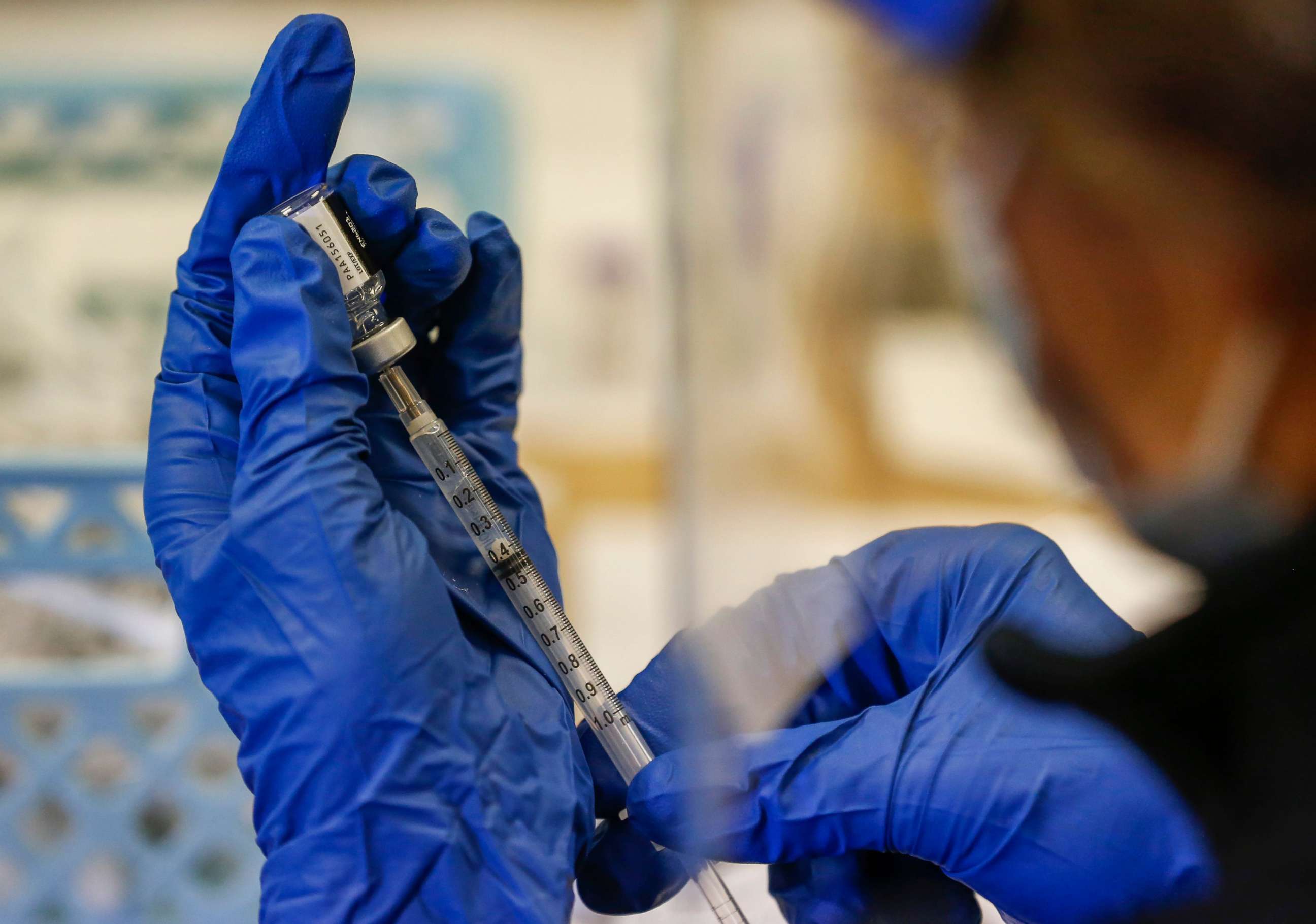Why these 2 Missouri counties' COVID-19 surges are among worst in the country
Variants and poor vaccination rates among young populations are partly to blame.
Sherry Weldon thought the worst of the pandemic was over for Livingston County, a rural area in northern Missouri, after the winter. Confirmed cases had essentially dropped down to zero. Schools had largely stayed open. But starting at the end of April, cases started popping up.
"Then in May, it just hit really quick -- with a vengeance," Weldon, the administrator of the Livingston County Health Department, told ABC News.
Whereas the county typically saw five to 10 new COVID-19 cases daily during the winter, they've consistently been seeing 20 to 25 now, Weldon said. The surge has forced summer school to go virtual for the first two weeks, and they're seeing more pediatric cases now than they did during the school year, she said.
"We did not expect this at all," Weldon said. "We all thought we were going to be able to go on vacation sometime this year."
The situation in neighboring Linn County has also reached a level of transmission not seen before during the pandemic, as COVID-19 cases are steadily declining elsewhere across the U.S. amid the vaccine rollout.
In late May, the county's medical director, Dr. Kendal Geno, posted an "urgent plea" on Facebook to his friends in the area to wear a mask, limit gatherings outside the home and get vaccinated as the county was experiencing "rampant, uncontrolled spread of COVID-19."
"In rural Missouri it has been difficult the entire pandemic, honestly, to get people to take things seriously in many ways," Geno told ABC News, noting that the county never issued a mask mandate. "But what inspired me to put that particular post out there was that our numbers were the highest, and still are the highest, they have ever been in the entire pandemic."
As of Friday, Geno said there were 200 active cases in Linn County, which has fewer than 12,000 residents. That meant about 1 in 60 people had a confirmed case of COVID-19, he said, though the number is likely higher.
"It's kind of sobering," he said.
Linn and Livingston counties have the highest number of new COVID-19 cases for the past week not just in Missouri, but the country, based on the The New York Times tracker as of Saturday.
Geno attributes the spike in the counties to a "perfect storm" of laissez-faire attitudes around mitigation measures and quarantining, the spread of more transmissible COVID-19 variants and low vaccination rates among younger populations.
Much of the spread is happening among people younger than 50, where there's "very, very large vaccine hesitancy," Geno said.
"Our vaccination rates aren't terrible in the elderly population, but they're abysmal in the under-50 age group," he said.

Weldon said vaccination was also Livingston County's "big downfall," and that public health officials have had to dispel unfounded rumors around the vaccines' safety.
The health department is trying to connect with businesses and organizations to set up vaccine drives. It has been busier at its walk-in vaccination clinic lately, too, "but we need much higher numbers than that," she said.
As of Saturday, both counties had just under 30% of residents fully vaccinated, compared to 35.2% statewide and 41.6% nationwide.
Neither county has reported any recent deaths due to the virus, though Geno said people are getting sick enough to seek medical care or be hospitalized. More serious cases have sometimes had to go to hospitals in Kansas City, about 100 miles south, Sheldon said.
Recently, the state health department determined that both the alpha variant, first identified in the United Kingdom, which is the dominant strain in Missouri, and the delta variant, currently associated with India, are likely circulating in the communities.
On June 11, state health officials are hosting a free COVID-19 testing event in Linn County to better monitor COVID-19 transmission in the region.
"We're hoping we're not the beginning of Missouri's big outbreak for the Indian variant," Weldon said. "That's my hope, that we shut it down before it gets too crazy."




